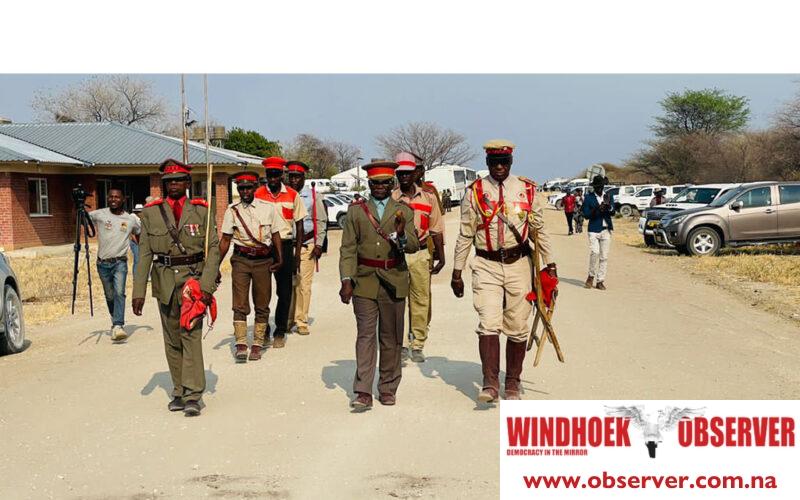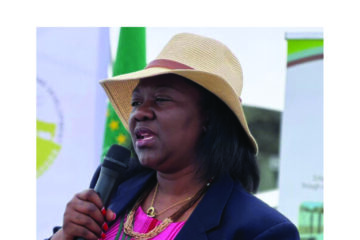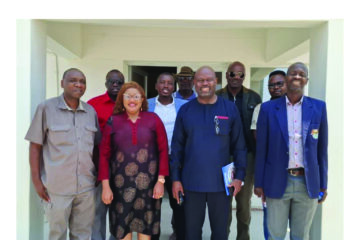Martin Endjala
The group of 98 Batswana of Namibian descent were repatriated to Namibia on 20 September, after they crossed the border at the Dobe border post in the Hardap region.
This long-anticipated homecoming follows a decision by the Cabinet during the tenure of late President Hage Geingob, which mandated the government to facilitate the repatriation process.
Annah-Maria Mokgethi, Botswana’s minister of labour and home affairs, described the return as a fulfilment of the Southern African Development Community’s (SADC) protocol on the facilitation of person movement.
“The relationship between Botswana and Namibia is characterised by strong bonds of friendship rooted in deep historical and family ties,” Mokgethi said.
She said the initiative to have people voluntarily return to their ancestral land underscores the level of democracy, transparency, and freedom of choice available to the citizens of both countries.
Mokgethi lauded the Batswana of Namibian descent for their contributions to Botswana’s development, highlighting their hard work, law-abiding nature, and the positive impact they have had on their host communities.
“As Botswana, we remain honoured to have hosted a hard-working, law-abiding community of descendants of Namibians who have been contributing immensely to the development of Botswana,” she said.
She expressed confidence that the returning community would continue to invest their wealth of knowledge and experience in Namibia, fostering productive outcomes that will benefit both nations.
“To the people relocating today, I want to say, as you have lived part of your lives with us, and with some of your relatives still residing in Botswana, you are home away from home. This necessary exercise does not cut the ties that the two nations have built from time immemorial,” Mokgethi remarked.
She encouraged the repatriates to continue nurturing the relationships they have formed in Botswana, assuring them that they will always have a place across the border.
“I trust that you will continue to visit and nurture these relationships,” she added.
The minister of home affairs, immigration and safety security, Albert Kawana explained the initiatives as testament to the cordial bilateral relationship between the two countries.
“I would like to say welcome home. You have arrived at home, the land of your ancestors. Namibia is your home. You are now citizens of the land of the brave. Enjoy your integration into the Namibian society with full rights that are accorded to each and every Namibian citizen,” he said.
This is neither the first nor the last group to return home.
In 1993, the first two groups returned home and successfully integrated into the Namibian community.
Kawana further revealed that the government, in close collaboration with the Kambazembi Traditional Authority, has secured and developed a communal area in Gam for livestock grazing purposes.
The said farms are developed with farming infrastructure, such as boreholes, water tanks, solar lights, and animal handling facilities.
Kawana promised the group that his ministry would ensure that they received Namibian national documents such as identity cards and passports for easy mobility within and outside of Namibia.
“The government has granted custom duty exemption for importation of their goods, while environmental levies on motor vehicles have been waived,” he pointed out.
He implored other line ministries to expeditiously provide all public services to the group, ensuring it enjoys services similar to those provided to fellow Namibians, such as social grants for senior citizens and orphans, among others.
Kawana said the events of 1904–1908 were nothing but genocide, and Namibia is unconditionally demanding restorative justice through reparation in order to heal the wounds of that dark history.
“The Namibian nation is unconditionally demanding an apology for this dark history,” stated.
The repatriation processes are expected to continue until 2026.
As part of the integration of the repatriated group, the government, through the agriculture ministry, has acquired five commercial farms with a combined size of 23 054 hectares in the Omaheke, Otjozondjupa and Hardap regions for N$58.7 million for their resettlement.




